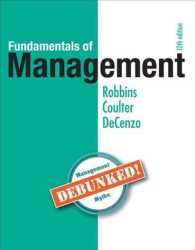Full Description
This book explores the narrative of education being in a state of perpetual crisis and the motivations behind the historical and contemporary tendency to exploit the same. Written as a call for greater media literacy, the book recognizes how and when "solutions" to the oft-acknowledged educational crises fail to address root causes, which ends up only maintaining the status quo.
The chapters of the book examine how the notion of education being in a perpetual state of crisis is often underpinned by a lack of funding, cherry-picking of data, ideological imperatives, the fashioning of public opinion as amorphous, or simple incompetence. Offering real-world solutions using international examples from Japan, India, Sweden, Russia, South Korea, and more, explained through robust philosophical conceptions, the author advocates for skepticism and epistemic humility as a key component in education. The book ultimately calls for people to reclaim the agency they have collectively surrendered in face of these crises and emphasizes on forging a new path that prioritizes forward-thinking movements.
This book will be of value to academics, postgraduates, and scholars of education interested in a solution-centric reorientation of the ongoing narrative and notions of education.
Contents
Introduction
Chapter 1: How the Crisis Narrative Does Not Look for a Solution
Chapter 2: If There Are So Many Crises in Education, Why Are We So Resistant to Change?
Chapter 3: The Trouble with Opinions (Doxa)
Chapter 4: What Drives Educational Crises?
Chapter 5: Doubt as a Foundation to Education
Chapter 6: The Crisis of Being "Right"
Chapter 7: The Trouble with Public Opinions (Endoxa)
Chapter 8: What Drives Global-Wide Low Standards in Education?
Afterword






